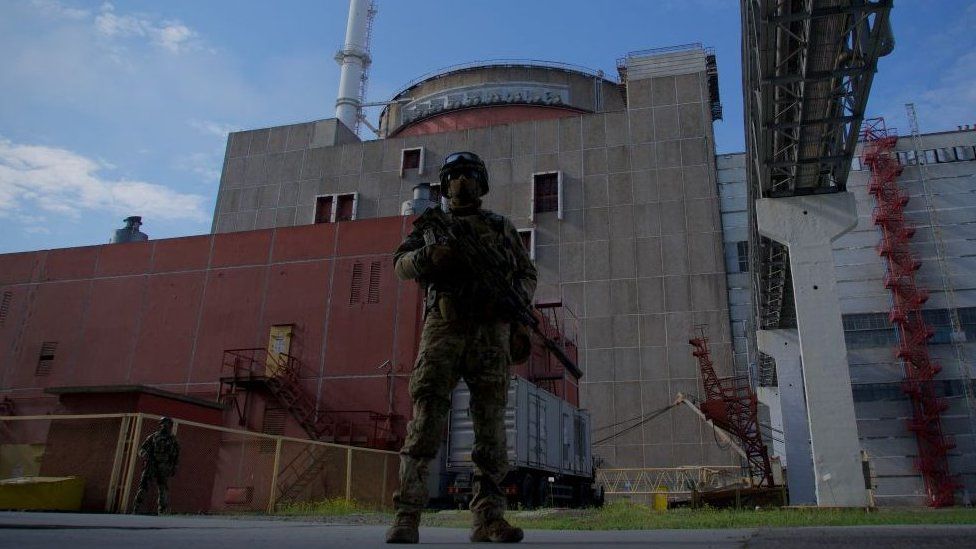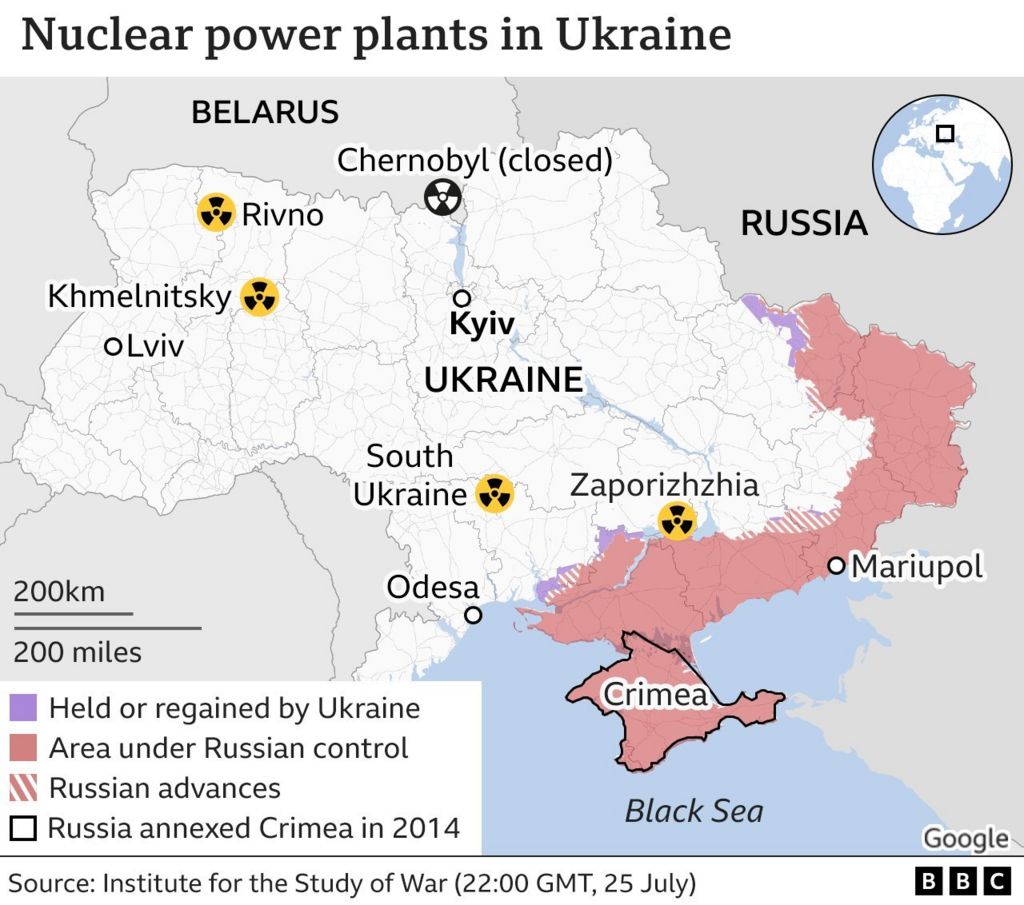Playing With Nuclear Fire
"The situation is very fragile. Every principle of nuclear safety has been violated one way or the other and we cannot allow that to continue.""You have a catalogue of things that should never be happening in any nuclear facility.""[I and my team need protection to reach Zaporizhzhia - which means co-operation of both Russia and Ukraine]. I'm pleading to both sides to let this mission proceed.""While this war rages on, inaction is unconscionable. If an accident occurs at Zaporizhzhia Nuclear Power Plant, we will not have a natural disaster to blame - we will have only ourselves to answer to. We need everyone's support.""When you put this together -- [supply chain of equipment and spare parts interrupted], so we are not sure the plant is getting all it needs. [The IAEA also needs to perform very important inspections to ensure that nuclear material is being safeguarded], and there is a lot of nuclear material there to be inspected -- you have a catalog of things that should never be happening in any nuclear facility. And this is why I have been insisting from day one that we have to be able to go there to perform this safety and security evaluation, to do the repairs and to assist as we already did in Chernobyl."Rafael Grossi, head, United Nations nuclear agency, International Atomic Energy Agency
 |
| Russian serviceman guarding the plan ANDREY BORODULIN/AFP |
Moscow seems not to understand, perhaps not to care, how its troops are cavalierly treating the very real danger of causing a nuclear disaster in the largest nuclear plant in Europe, located in the south-eastern city of Enerhodar, which has been under Russia occupation almost from the beginning of the Russian invasion of Ukraine. The power plant is being used, inexplicably, by Russian troops to shield themselves from Ukrainian bombardment.
From the shelter of the power plant roughly 500 Russian troops launch attacks against civilian and military Ukrainian targets. Ukrainian forces, knowing full well the danger of launching return attacks, have had to withhold their fire. Last month Russian military authorities ordered the plant's staff to surrender access to the engine rooms of three of the Zaporizhzhia plant's reactors. To be used as storage facilities for Russian heavy weaponry.
The ammunition was stored in close proximity to highly combustible materials with the potential to trigger a nuclear disaster if detonated, according to Energoatom, Ukraine's state-operated nuclear company. To make the situation even more complex and dangerous, Russian occupiers of the plant made it almost impossible for plant emergency personnel to enter the engine rooms in the case of emergencies.
 |
Against all logic, Russian troops use the plant as a base from which to pummel Ukrainian-held positions on the Dnipro river's west bank. The one-way fire represents the unaccountable recklessness of the Russian military banking on the Ukrainian military withholding return fire in the interests of avoiding a devastating disaster of dreadful proportions. An accidental strike of a nuclear reactor to be avoided at all costs. And in this instance the cost is an inability to strike back.
 |
| Flames can be seen after Russian shelling of the Zaporizhzhya Nuclear Power Plant in Ukraine on March 4, 2022. (Zaporizhzhya Nuclear Power Plant via Storyful) |
"We are ready to show how the Russian military is guarding the plant, and how Ukraine, which receives weapons from the West, uses those weapons including drones to attack the nuclear powerplant", stated Yevgeny Balitsky of the Zaporizhzhia region, defending the Russians against Ukrainian accusations of dangerous power plays, while refusing to accede to requests by the IAEA to enable them to inspect the facility..
Since the plant's capture by the Russian military, plant workers have had little option but to maintain the facility despite terrifying conditions, utterly lacking technical support. Anti-personnel mines have been planted by the Russians around the shore of the reservoir used to cool the plant's six reactors. Ukraine has launched limited attacks near the plant on Russian targets.
In Nikopol, across the Dnieper river, hospitals maintain emergency supplies of iodine in the event radiation poisoning occurs as a result of an explosion at the nuclear plant. The town's residents fled, to escape the incessant shelling.

Labels: Danger, IAEA, Russian Invasion of Ukraine, Russian Military, Russian Occupation of Nuclear Power Plant
0 Comments:
Post a Comment
<< Home